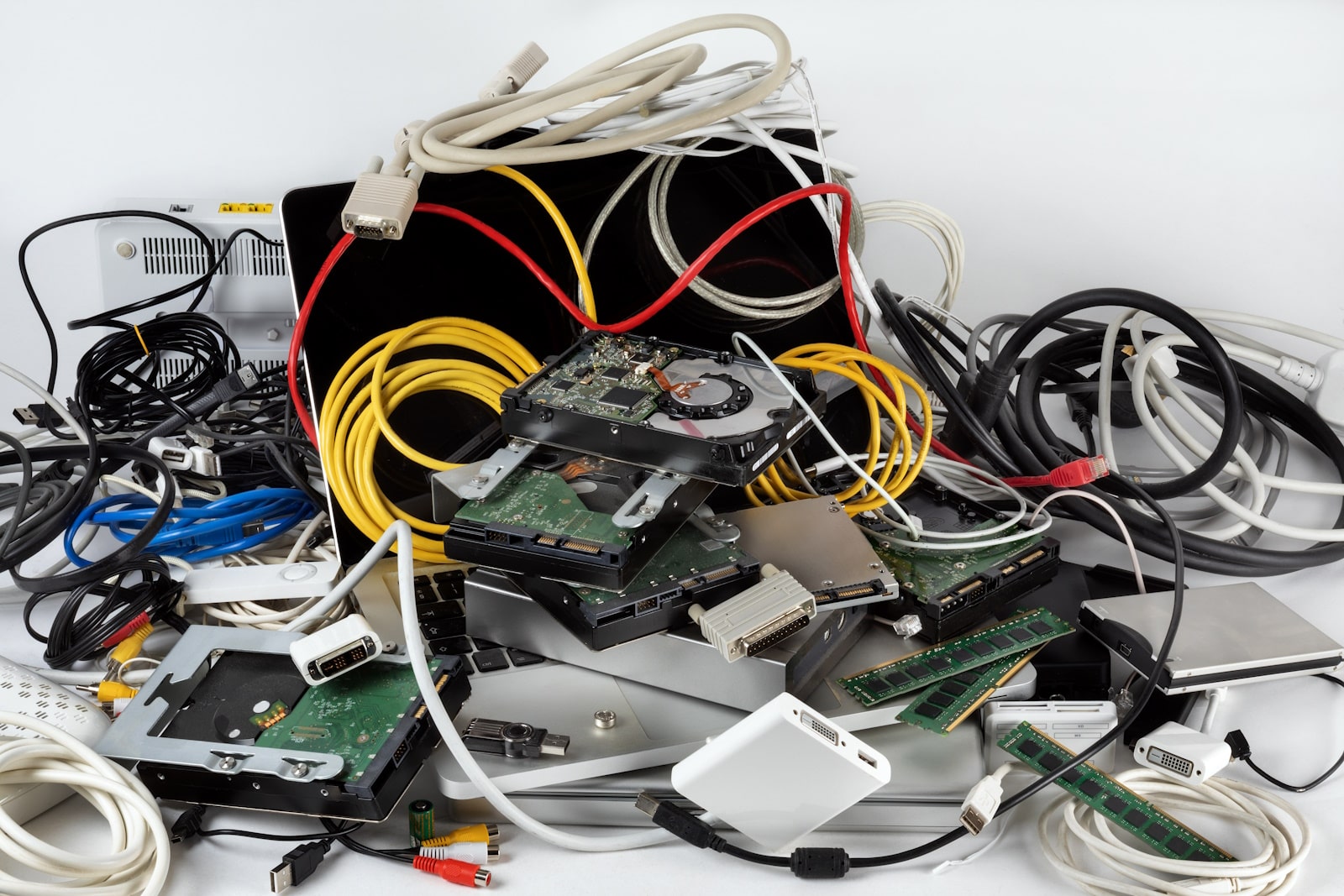How a Waste Company Manages E-Waste
Electronic waste (e-waste) is the fastest-growing waste stream globally, and South Africa is no exception. As technology evolves rapidly, old devices pile up in our offices, homes, and landfills, creating serious environmental and health hazards. For any waste company, understanding how to handle e-waste safely and efficiently is no longer just good practice – it’s a critical part of sustainable operations. Whether you’re dealing with old computers, fridges, or phones, managing e-waste responsibly protects the environment, safeguards human health, and ensures your business stays compliant with national waste regulations.
What Is E-Waste?
E-waste refers to discarded, obsolete, or broken electrical and electronic devices. This includes:
- Large household appliances – fridges, washing machines, dishwashers
- Small household appliances – kettles, microwaves, irons
- ICT equipment – computers, laptops, smartphones, printers
- Consumer electronics – TVs, radios, cameras
- Medical devices – monitors, diagnostic machines
- Tools and toys – power tools, electric toys
Most electronics contain toxic substances like lead, mercury, cadmium, and brominated flame retardants, which can severely pollute soil and water if not disposed of correctly.
Why Should a Waste Company Care About E-Waste?
1. Protecting Human Health
When e-waste is dumped in general landfills or burnt, harmful chemicals are released into the air, water, and soil. Exposure to these toxins can cause:
- Neurological damage
- Respiratory issues and lung disease
- Kidney, liver, and reproductive system problems
- Cancer and birth defects in children
Waste workers are especially vulnerable if safety standards aren’t upheld during dismantling and sorting processes.
2. Safeguarding The Environment
Improper e-waste disposal contaminates the environment by:
- Releasing heavy metals and toxic chemicals into groundwater and rivers
- Emitting dangerous fumes during burning, worsening air pollution and climate change
- Harming plants, animals, and entire ecosystems
3. Preventing Data Breaches and Liability
Electronic devices like laptops and smartphones often store sensitive information. Throwing them away without secure data destruction poses risks including:
- Identity theft and financial fraud
- Corporate data leaks and breaches
- Legal penalties under South Africa’s Protection of Personal Information Act (POPIA) if client or employee data is exposed
How Can a Waste Company Manage E-Waste Effectively?
Step 1: Implement Data Destruction Services
Offer clients certified data destruction solutions before recycling or disposal. This could include:
- Degaussing: using strong magnetic fields to erase data
- Physical destruction: shredding or crushing hard drives and memory sticks
This ensures your waste company protects client confidentiality and mitigates liability.
Step 2: Sort and Categorise E-Waste Properly
Proper sorting improves efficiency and environmental outcomes. Separate:
- ICT devices (computers, printers, cables)
- Large appliances (fridges, stoves)
- Small appliances (hairdryers, kettles)
- Batteries and light bulbs (often requiring specialised recycling)
Sorting ensures hazardous components are identified and processed safely while valuable materials are recovered efficiently.
Step 3: Partner with Licensed E-Waste Recyclers
Under South African law, e-waste is classified as hazardous waste, meaning only licensed facilities can handle it. Work with certified recyclers who:
- Dismantle devices to recover valuable metals (gold, copper, lithium)
- Remove hazardous components safely (e.g. mercury switches, CRT glass)
- Comply with the National Environmental Management: Waste Act (No. 59 of 2008) and the National Waste Management Strategy (2020)
This protects your company and clients from legal, environmental, and health risks.
Step 4: Educate Your Clients
Awareness is critical. Educate your customers about:
- The dangers of dumping e-waste in landfills
- Scheduled drop-off or collection days for electronics
- The environmental and economic benefits of proper recycling, including conserving non-renewable resources and creating jobs in the recycling sector
How Is E-Waste Recycling Done?|
Here’s a simplified overview:
- Manual Sorting: E-waste is sorted by type and examined to extract reusable components for resale or refurbishment.
- De-manufacturing: Devices are safely dismantled to remove hazardous materials (e.g. toner cartridges, batteries) that could contaminate shredding equipment or explode.
- Shredding: Remaining waste is shredded into tiny pieces for separation.
- Magnetic Separation: Magnets extract ferromagnetic metals like iron and steel.
- Eddy Current Separation: Non-ferrous metals such as aluminium are separated using electrical currents.
- Water Separation: Plastics float while heavier materials like glass sink, separating these waste streams effectively.
- Final Inspection: Recyclers check for remaining valuable materials before disposal of non recyclable components.
Current Challenges in E-Waste Recycling
Despite the benefits, recycling e-waste isn’t straightforward due to:
- Product Design Issues: Modern electronics are smaller and more complex, with non-removable batteries, making dismantling hazardous and labour-intensive.
- Limited Recycling Capacity: Only 10 out of 60 chemical elements in e-waste can be recovered using current mechanical processes.
- Worker Safety Risks: Manual sorting exposes workers to low-level toxic substances over long periods.
Yet, the economic and environmental potential remains enormous. In 2019 alone, global discarded e-waste was worth over US$57 billion in recoverable materials.
FAQs About a Waste Company
What does a waste company do?
A waste company collects, transports, sorts, treats, recycles, or disposes of different waste streams, ensuring environmental and legal compliance.
Can a waste company handle e-waste in South Africa?
Yes, but it must work with licensed hazardous waste recyclers to dismantle and process e-waste safely according to the Waste Act.
Why is e-waste classified as hazardous waste?
Because it contains toxic heavy metals and chemicals harmful to humans and the environment if disposed of without proper controls.
How can I dispose of e-waste safely?
Contact your waste company or take e-waste to a certified recycler. Businesses must keep records of hazardous waste disposal under South African regulations.
E-waste management is no longer optional for waste companies. It is a legal, ethical, and environmental duty to ensure electronics are recycled safely and sustainably. At A-Thermal, we specialise in compliant, environmentally friendly e-waste destruction and recycling services to protect your clients, community, and business reputation. Contact us today to find out how we can support your waste company in managing e-waste safely and sustainably.







